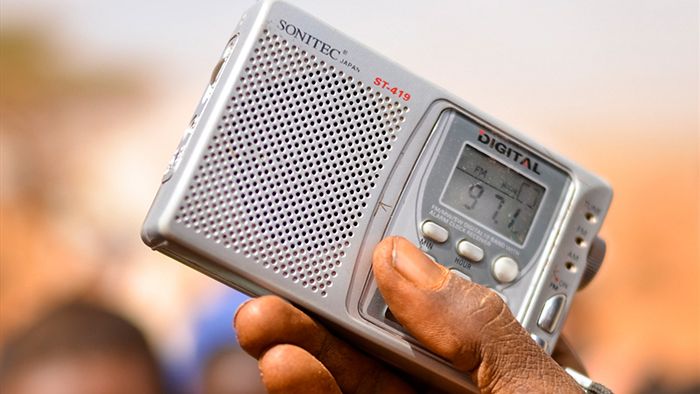Leverage on the power of radio to avert emergencies and disasters, UN Chief Ban says

The UN Secretary General Ban Ki-moon has called on the international community to find ways for radio to do even more to help people during responses to the increasing number of emergencies and disasters facing the world.
In a statement to mark the World Radio Day which is observed on 13 February since its inception in 2011, Ban said radio has played a critical role in emergency responses globally and has assisted communities and people to voice their concerns towards reconstruction efforts.
“In times of crisis and emergency, radio can be a lifeline,” said UN Secretary General Ban Ki-moon in a statement on the Day.
Mr. Ban called on the internationally community to use the time in the lead-up to the World Humanitarian Summit in May to ensure that radio continues to improve in helping people in emergencies.
“On this World Radio Day, let us resolve to prove that radio saves lives,” the UN chief said. “This year, as we start carrying out the Sustainable Development Goals, let us resolve to use radio for human progress.”
In another message for the Day, Irina Bokova, the Director-General of the UN Educational, Scientific and Cultural Organization, UNESCO emphasized that radio has demonstrated its power in situations of immediate post-disaster, but also in times of preparedness and recovery.
“Amidst the ruins and in the face of an emergency, the radio is often the first medium for survival,” Ms. Bokova said. “Its durability is an incomparable advantage, often enabling it to resist shocks and retransmit messages of protection and prevention to as many people as possible, better and faster than other media, saving lives.”
Specifically, radio airs tsunami alerts in Japan and Chile, and messages on how to avoid Ebola transmission in Liberia or Zika contagion in Brazil. The medium, which is accessible and offers real-time coverage and reporting, has the capacity to involve the audience and plays a pivotal role in preventing and mitigating disasters and the associated human costs, Ms. Bokova stressed.
The first radio broadcast in Somalia went on air in 1943 when Radio Hargeisa was established and subsequently Radio Mogadishu which was formally established in 1951 before it closed in 1991 following the civil war. The station re-opened in 2000.
Since then the radio industry in Somalia has dramatically proliferated with over twenty radio stations in the country operating at commercial, community and faith based levels/
In 2011, the UNESCO General Conference proclaimed 13 February as World Radio Day, the day UN Radio was established in 1946. Radio is the most prevalent mass medium, with the ability to reach up to 95 per cent of the world’s population.
As a result, World Radio Day, which this year coincides with the 70th anniversary of UN Radio, aims to celebrate radio as a medium; to improve international cooperation between broadcasters; and to encourage major networks and community radio alike to promote access to information, freedom of expression and gender equality over the airwaves.
This year’s theme is Radio in Times of Emergency and Disaster